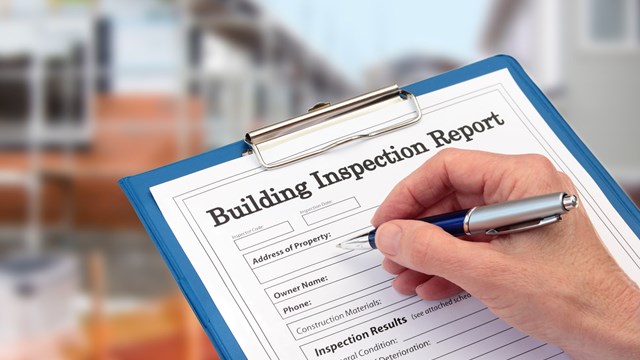
As the recent recession has lingered on, co-ops and condo associations across the region—from luxurious waterfront high-rises to sprawling suburban developments—have found more of their residents in arrears with their monthly fees. Some of these people have lost jobs, and unemployment has forced them to prioritize (and sometimes skip) their monthly bills. Credit cards and mortgage payments often are paid first, followed by utilities and property taxes.
Condo fees can get back-burnered when a resident’s finances are tight—partly because of the fact that the association board members aren’t likely to show up on the doorstep of a resident in arrears and demand payment. Thus, residents who are in arrears often don’t immediately feel an impact from the failure to pay.
Even so, there is a real cost resulting from shareholders and unit owners not paying their share. Essential building maintenance sometimes cannot be done due to lack of funds, or important capital improvement projects such as new windows throughout the community may have to be put off indefinitely. Simply put, too many residents failing to pay their monthly fees could ultimately lead to extra fees for every resident—and can be downright disastrous if a major repair comes up and the HOA is caught seriously short of funds.
Real Impact
It’s a building, and being just one resident, not paying your monthly fees won’t have much impact, right? Wrong, says Denise Lindsey, vice president of Access Property Management in Flemington. "Until it's explained, a lot of homeowners don't understand that they are part of an association, and that the only way the association gets its funding is from the homeowners' maintenance fees."
While a percentage of monthly fee scofflaws aren’t doing so out of necessity, most residents who don’t pay do so because they've fallen upon tough times. “The vast majority of people who are not paying are in economic trouble,” says Jules Frankel, who is with the accounting firm of Wilkin & Guttenplan, PC in East Brunswick. But sympathy for neighbors notwithstanding, “The reality is that everybody else ends up paying for those who aren’t paying.”
For some residents, the biggest misconception regarding not paying their fees is based in a lingering landlord/tenant mentality. Though these residents are the owners of their apartments, they tend to view the co-op or condo board and management as landlords, rather than the elected representatives and employees they actually are. Such residents may view their board/management team as bill collectors or adversaries, and don’t see that not paying their fees directly affects their neighbors, says Lindsey. "Many times, the [owner's] misconception is that the managing agent hasn’t budgeted properly and has caused the fees to be too high. We need to constantly explain that the operating budget is to keep the association running, and that the board approves the budget. We also remind them that the board members pay the fees, too and are equally affected by the non-payment of maintenance fees."
“I think one of the misconceptions is that they may feel that they are the only ones who are in arrears and feel that it won’t hurt the community very much,” adds Bob Rogers, a regional community manager with Taylor Management Company in Whippany. “The fact is that most communities have a number of delinquent unit owners and as we move forward, we need to budget properly for 'bad debt.' This is likely to increase the monthly fees for the entire community.”
Even more importantly, says Elysa D. Bergenfeld, an attorney with the Lawrenceville-based law firm of Stark & Stark, "Many owners believe that if they choose to stay current with their mortgage to the detriment of other bills—including the association assessments—they can prevent a foreclosure. That is simply not accurate. Condominium and homeowners associations are authorized via their governing documents to file foreclosure complaints with regard to delinquent owners."
Act Now
Given these facts, and also the reality of needing to live amicably with one’s neighbors, boards and managers of buildings with residents who are in arrears should tread wisely while dealing with the problem. Making the proper moves to collect fees could ensure payment or do the opposite, dragging out the conundrum.
Faced with a resident who is not paying his or her monthly fees, some boards simply fail to act. The building might not have a standardized procedure for dealing with missed payments, and board members might let the problem go unchecked because they aren’t sure how to deal with it. In higher-end buildings, a few missed payments from a resident may not be a big deal, but in buildings with tighter finances, missing payments affect everyone.
"Condominium associations must begin the collection process early," stresses Bergenfeld. "Studies show that an association can improve its recovery of unpaid assessments by an upwards of 75 percent via letters and other non-litigation efforts while the balance remains manageable. By waiting, the association simply allows its competing creditors to get the first crack at what is likely an ever dwindling source of funds and/or income. Management must be the leader in this regard, constantly focusing on the delinquency list and ensuring that no owner is allowed to generate a significant arrearage."
Most well-run buildings have a protocol for dealing with missed payments. If you are late ‘x’ number of days, a letter is sent to you from management asking for payment. After ‘xx’ days late, a late fee is assessed and a second letter sent to the offending unit owner. Following those steps, the matter is sent to the building’s attorney to handle. Depending upon the building’s bottom line, a board or management team could contact a resident about their arrears after just one missed payment. Indeed, most management and financial pros advocate such a nip-it-in-the-bud approach—including revocation of amenity privileges for non-payment.
"[Owners in arrears] are immediately denied any of the privileges such as the pool, use of the gym, clubhouse, etc.," says Rogers of the communities he handles. "In addition, late fees are added to their account, as well as any legal fees associated with the collection of the debts.
Generally, delinquent unit owners get 30, 60 and 90 day delinquent letters, which then usually generates the involvement of the attorneys. Rarely would the board ever get involved, other than to authorize certain legal action to take place. Once it's in the attorney's hands, they are responsible for all legal fees associated with that collection process. That includes all letters, liens, judgments, etc. If they are seriously delinquent, the legal fees could reach between $5,000 and $10,000."
Many buildings do have a bad debt expense allocated in their budget. But during hard times such as the past few years, it is possible for the number of residents who are in arrears to overwhelm a building’s resources and derail the management team’s best efforts. Because of this possibility, each board member should remember their fiduciary responsibility to act in the best interests of the whole building.
“Each board member needs to ensure that they have a process to quickly act when arrears reach a certain dollar amount and are a certain length of time outstanding,” Frankel says.
Consequences of Debt
Since the impact of residential debt to a building might immediately be felt in its management, some buildings might want to take legal action fairly quickly after finding a resident in arrears. Legal help is an important tool in dealing with a resident in arrears. After a third month of nonpayment of fees, a board might want to send the matter to its attorney, the experts say.
Some exceptions can be made by some buildings for residents who are in arrears but are hardship cases, industry experts say. Buildings that are running on very tight budgets won’t be able to allow such exceptions for very long.
The real day-to-day impact of residents being in arrears can be devastating to a building’s financial state. Lindsey recalls one instance where a community's pool was closed for an entire summer for just this reason. “The board needed to look for ways to be able to pay for the daily operations of the association,” she says, “such as property insurance and keeping the lights on in the building. In another community, all deferred maintenance was put off until they could catch up on their outstanding invoices for necessary services. The community was in dire need of having the wood painted, but for the safety of the residents, they needed to keep the association insured and well lit.”
Another manager points to one Jersey City co-op building that didn’t have enough money to meet operating expenses because there were so many residents behind in their payments. A significant percentage of residents in the building were unemployed, and the lack of funds meant the building’s management couldn’t get vendors to work in the building because they thought they wouldn’t be paid. As a consequence, the building was quickly falling apart from lack of physical maintenance.
Another building with similar woes needed its HVAC system fixed, but its contractor balked at the job, fearing he wouldn’t be paid. The management had to hire another contractor at an exceptionally high rate of pay, to get the job done.
In buildings with financial problems from residents missing payments, the ripple effect can be fast and severe. Most managers acknowledge that the building service world is small, and word travels fast—buildings whose management is failing to pay vendors in a timely fashion could quickly become pariahs. According to one management pro, “Contractors all know each other, and they want to be paid. To get any services, you’ll have to start putting money upfront [for work to be done.]"
Such a situation might call for the board putting a special assessment on all the residents, increasing the financial burden on the residents who are paying their fees on time. First and foremost, the board must see that the building meets its obligations. "When one unit owner—or multiple owners—decide not to pay, other owners have to foot the bill for the rest of the owners within the community," says Bergenfeld. "[Non-payers] are essentially stealing services and being unjustly enriched. Associations need to understand this and take a hard-nosed approach to collections. It is their fiduciary duty to do so. In this lingering recession, it is extremely important that boards be aggressive, talk to their lawyers and be creative about how to collect fees."
Disuniting Communities
The financial costs to a community with apartment owners in arrears can be quickly evident to everyone, but the more insidious effects can amount to a breakdown in community feeling. People can become less friendly due to perceived inequities between them and their neighbors.
“When the majority of residents feel that the minority aren’t paying their share, it can adversely affect relationships,” say one attorney. “You don’t want to live in a building where people are glaring at each other in the elevator.”
Even more tangibly felt than feuding neighbors, having residents in arrears could impact the long-term solvency of a building. New FHA loan requirements for prospective buyers mean that certain buildings with serious financial issues aren’t always able to welcome into the community new residents, because those would-be owners can’t get FHA financing.
“This is an ironic issue, because certain buildings don’t want to be FHA-approved because they want the prospective resident to personally have the resources to get a non-FHA loan. In other buildings, FHA help is critical for buyers,” Frankel says.
The recent financial crash and resulting government bailout of financial institutions hasn’t made any of those companies free with a buck—the opposite is the reality. Lenders, in general, are looking at a building’s financial state before making a loan to a prospective unit owner. “A large amount of arrears in a building might make it hard for a buyer to get a mortgage,” says Bergenfeld.
Jonathan Barnes is a Pittsburgh freelance writer and a frequent contributor to The New Jersey Cooperator.






Leave a Comment